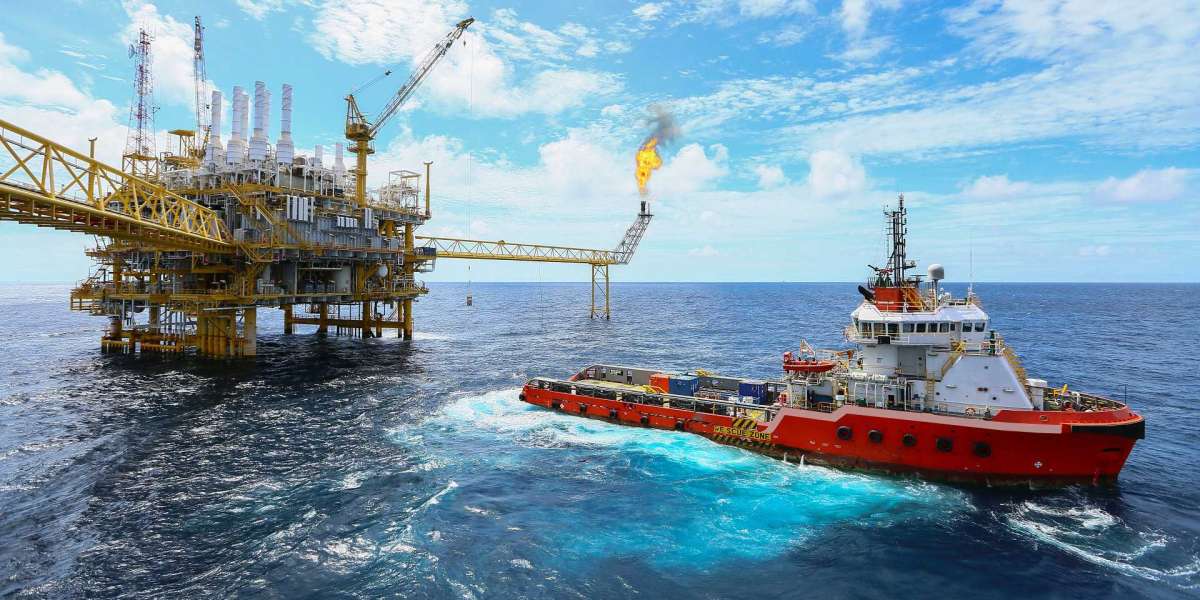The Malaysia Offshore Decommissioning Market is poised for significant growth as the country moves toward managing its aging offshore oil and gas infrastructure. Offshore decommissioning refers to the process of safely dismantling and removing oil rigs, platforms, pipelines, and other associated infrastructure when they reach the end of their operational life. The need for offshore decommissioning in Malaysia is intensifying, driven by the country’s growing focus on environmental sustainability, stricter regulatory standards, and the natural lifecycle of offshore oil fields. As more offshore assets in Malaysia approach decommissioning, the market is expected to expand rapidly. This article explores the dynamics, trends, opportunities, and challenges in the Malaysia Offshore Decommissioning Market.
The offshore oil and gas industry in Malaysia has been a key driver of the nation's economic growth for decades. However, as the industry matures, the need for efficient decommissioning solutions becomes critical to ensure both environmental protection and economic feasibility. The Malaysia Offshore Decommissioning Market is expected to see increasing investments and regulatory frameworks designed to streamline decommissioning processes while minimizing costs and environmental risks.
Market Overview
The Malaysia Offshore Decommissioning Market is in a phase of transition, with several key factors contributing to its growth. As Malaysia’s offshore oil and gas reserves begin to mature, the decommissioning of aging platforms and infrastructure is becoming inevitable. The country has one of Southeast Asia’s largest offshore oil and gas industries, with numerous offshore platforms spread across the South China Sea and other key offshore fields. Over the next decade, many of these platforms are expected to be decommissioned due to declining production, aging assets, and regulatory requirements.
Growth Drivers
Several factors are driving the demand for offshore decommissioning services in Malaysia:
Maturing Offshore Oil Fields
Malaysia’s offshore oil fields, such as those in the South China Sea, have been in operation for several decades, and many of the platforms are approaching the end of their productive lifespans. As these fields mature, the cost of production increases, and the risk of environmental accidents becomes more pronounced. Decommissioning these assets will help mitigate these risks and pave the way for more sustainable offshore operations.Environmental Regulations
The Malaysian government, in line with global trends, is implementing stricter environmental regulations to ensure that decommissioned offshore infrastructure is disposed of in an environmentally responsible manner. These regulations are forcing operators to invest in decommissioning projects that meet high environmental standards, which, in turn, is stimulating the growth of the decommissioning market.Aging Infrastructure
The infrastructure associated with offshore oil and gas extraction, such as platforms, pipelines, and subsea systems, has a finite operational life. As these structures deteriorate, the cost of maintenance increases, and the risk of operational failure rises. Decommissioning is, therefore, a necessary step to manage the lifecycle of these assets, with operators seeking efficient and cost-effective solutions to minimize their liabilities.Technological Advancements
The development of more efficient decommissioning technologies is contributing to the growth of the market. New techniques, including advanced cutting, lifting, and disposal technologies, are making decommissioning more cost-effective and safer. The use of robotics, automation, and digitalization in decommissioning activities is also increasing, further reducing the time and resources required to dismantle offshore platforms and infrastructure.
Challenges
Despite the market’s growth potential, there are several challenges facing the Malaysia Offshore Decommissioning Market:
High Decommissioning Costs
Offshore decommissioning is a complex and expensive process that involves the safe removal and disposal of large-scale infrastructure. The costs associated with decommissioning can be significant, especially for older platforms that require specialized techniques and equipment. This high cost is a barrier for many operators, especially smaller companies with limited financial resources.Regulatory and Compliance Issues
The regulatory framework for offshore decommissioning in Malaysia is still evolving. Operators need to navigate complex legal requirements, including environmental impact assessments and safety standards, which can delay decommissioning projects and add to the overall cost. Ensuring compliance with these regulations while managing the logistics of decommissioning can be challenging.Environmental Impact
Offshore decommissioning must be done in a way that minimizes environmental damage. The process can involve the disposal of hazardous materials, including oil residue, chemicals, and other pollutants. Ensuring that the decommissioning process is environmentally responsible requires significant expertise and resources, and failure to meet environmental standards can result in severe fines and damage to the reputation of operators.
Key Players in the Malaysia Offshore Decommissioning Market
The Malaysia Offshore Decommissioning Market is composed of several key players, including oil and gas companies, decommissioning contractors, and technology providers. These companies play a crucial role in the safe and efficient removal of offshore infrastructure. Some of the key players in this market include:
Petronas
As Malaysia’s national oil and gas company, Petronas is a significant player in the country’s offshore oil and gas industry. Petronas is involved in both oil extraction and decommissioning projects, with a focus on reducing environmental impacts and ensuring safe operations.McDermott International
McDermott International is a global leader in offshore engineering and construction. The company provides decommissioning services to oil and gas operators, offering solutions that include platform removal, subsea pipeline abandonment, and waste management.TechnipFMC
TechnipFMC is another prominent player in the offshore decommissioning space, offering a range of services including subsea decommissioning, platform removal, and well abandonment. The company has experience working in Malaysia’s offshore fields and provides advanced technology solutions to streamline decommissioning projects.Seadrill
Seadrill is an offshore drilling contractor that also offers decommissioning services. The company specializes in offshore drilling and well abandonment, providing the necessary equipment and expertise to carry out decommissioning operations efficiently and safely.Halliburton
Halliburton is a global oilfield services company that offers a broad range of solutions, including decommissioning and well abandonment services. The company works with offshore operators in Malaysia to provide safe and cost-effective decommissioning services.
Opportunities in the Malaysia Offshore Decommissioning Market
As the Malaysia Offshore Decommissioning Market grows, several opportunities are emerging for businesses and investors:
Development of Decommissioning Infrastructure
As the demand for decommissioning services increases, there will be a need for specialized infrastructure, including disposal sites, processing facilities, and logistics solutions. Companies involved in developing and maintaining these facilities can capitalize on the growth of the market.Green and Sustainable Decommissioning
There is growing demand for environmentally friendly and sustainable decommissioning solutions. Companies that invest in technologies that minimize environmental impact, such as waste recycling, safe disposal, and carbon capture technologies, will be well-positioned to meet regulatory requirements and attract business.Technological Innovation
The offshore decommissioning market presents an opportunity for technological innovation. Companies that develop more cost-effective and efficient decommissioning technologies, such as robotics for platform removal, subsea cutting tools, and AI-driven project management software, can gain a competitive edge in the market.Regional Decommissioning Hub
Malaysia’s strategic location in Southeast Asia makes it a potential hub for decommissioning activities in the region. With many neighboring countries in need of decommissioning services, Malaysia can position itself as a regional leader in offshore decommissioning, offering both technical expertise and logistical advantages.
Conclusion
The Malaysia Offshore Decommissioning Market is poised for significant growth as the country’s offshore oil and gas infrastructure continues to age. Factors such as maturing oil fields, stricter environmental regulations, and the need for sustainable decommissioning solutions are driving the demand for efficient offshore decommissioning services. Despite challenges such as high costs, regulatory complexity, and environmental concerns, the market offers ample opportunities for companies that can leverage technology, innovation, and strategic investments. With key players like Petronas, McDermott, and TechnipFMC already active in the market, Malaysia is on its way to becoming a leader in offshore decommissioning, playing a crucial role in ensuring the safe and responsible disposal of offshore oil and gas infrastructure.
More Trending Reports








